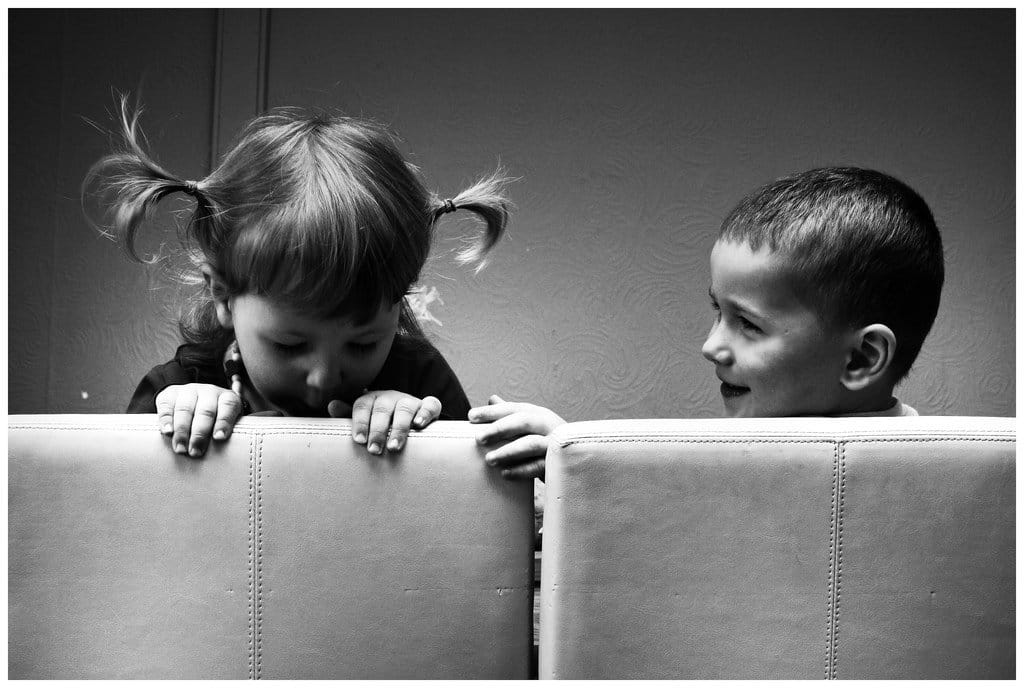Why I Teach My Daughter to Share

There’s a lovely post floating around Facebook from a blogger at my old stomping grounds, POPSUGAR Moms, about why she doesn’t have her child share because it creates self-entitled, impatient kids. It’s a very interesting read with insightful perspective. But after reading it, I still, more than ever, want my child to share. Without sharing, how would kids with siblings cope, and how would kids know to share the ball when playing a sport instead of simply saying it’s their ball?
The issue isn’t with sharing, it’s how kids share, and why. There are two main social sharing situations kids face, both of which are very important to the growth of a child and society: communal and personal. Keep reading to see how sharing can be used in these situations.
1. Communal Sharing
When at school or an activity center, the toys belong to the center, not your child. Here, it’s important to understand that. Why? Because if your child has decided a certain toy is theirs all day, even if they play with something else, then the next day they’ll “reserve” that toy again and soon think it’s theirs and no other child can have it. Kids need to share communal toys. This means a single child has it while they want to play with it, even if they use the potty, but are aware and that others would like to have the toy as well, and so consider that in how long they play with it. An overly popular toy may need a sign up sheet so that each child would need to plan ahead and sign up to have the toy all day (or for part of the day). This teaches kids sharing, but also that they can’t just take what they want from another child. Instead, kids can ask for a toy ahead of time and wait their turn.
Though I think kids should be able to go potty without a toy they’re playing with getting swiped, a set time allowed before needing to share the toy with others waiting should be established by the center, or agreed upon with all parents. Kids have short attention spans for things, plus usually find only the toys other kids have as appealing, so if Sarah has a train, then Billy will want the train, making Sarah determined to keep it. This is exactly why sharing rules need to be set in communal sharing spaces. If a kid asks or demands for the toy, that doesn’t mean they get it, and parents should teach their kids to ask other children if they can use the toy when they’re done instead of pushing, taking, or demanding it immediately. But, the child using the toy should be aware of others, and that it’s a communal toy meant for everyone. This is a great opportunity to teach generosity, too. If there’s a limited amount of playtime left and your child isn’t done playing, but wants to help out a kid who has been waiting patiently for their turn with the toy, she could opt for shared play with the toy instead of keeping it to herself.
2. Personal Sharing
If I take my daughter to the park with just a few toys I brought to keep her busy I don’t expect her to share. She may if a child likes her toys and she likes theirs, but she knows she can say “no,” there’s no expectation there. Those are her toys. But, if we invite her friends over for a play date, there’s an expectation that she will share since the play will happen in our home with our toys and crafts. At this time, she’s allowed to have a special toy she doesn’t want to share, but she can’t start acting like they’re all her “precious” and scream like a banshee. We invited her friends to play, so there’s an expectation that she shares most (if not all) of her toys so that she and her friend can both play together. This is important because there are far too many “mine, mine, mine!” people out there, and she needs to understand that letting a friend borrow something or lending a helping hand is a part of friendship.
Do you establish sharing rules with your child? How do you foster their social and emotional growth in situations like this while teaching them to be a kind and helpful citizen? Please comment below!
